Another Year of War: Stories from the Syrian Diaspora
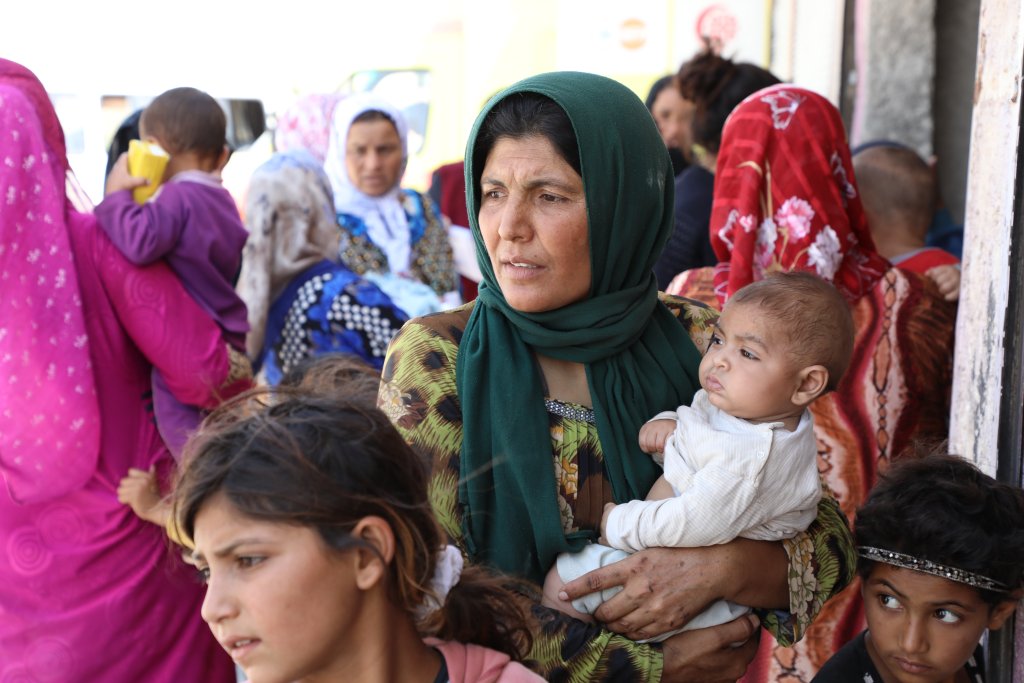
Syria has entered its 11th year of war. Over 13 million Syrians have had to leave their homes—and about half have left their country for Turkey, Lebanon, Jordan, Iraq, and Egypt. Displacement and migration threaten women and girls’ access to essential reproductive health services, like prenatal and safe delivery care and family planning. And, it puts them more at risk for gender-based violence, including harmful practices like child marriage. But because of you, UNFPA is able to provide lifesaving care to Syrian refugees.
“The situation in Syria is worse than it has been in years,” said UNFPA Arab States Regional Director, Dr. Luay Shabaneh.
Dr. Shabaneh continued, “The impacts of the deepening economic crises in the region, the COVID-19 pandemic, ongoing and new hostilities, mass displacement, and violations of human rights, have all converged to put women and girls throughout the region at greater risk. Meanwhile, for those who need it, access to lifesaving sexual and reproductive health and protection services has become even more difficult.”
But thanks to your support, we are there. Across the region, UNFPA operates 79 safe spaces for women and girls, 15 youth centers, 26 emergency obstetric care facilities, 119 primary health care centers, and 94 mobile clinics.
Hear from women and girls we’ve reached with care from across the diaspora:
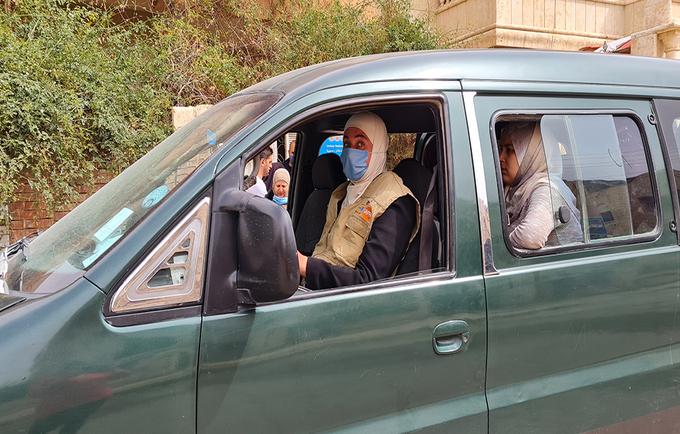
Olphat in Syria
“Being able to help women challenge their oppressors and feel like they have agency over their body is something I will not trade for anything in the world,” Olphat said.
Olphat is the first woman in Syria to drive for UNFPA. She has a van that she uses to transport women and girls to UNFPA facilities so they can access sexual and reproductive health services. The cost of transportation as well as limitations on women’s freedom of movement prevent women and girls from accessing the care they need. But because of Olphat’s groundbreaking work, that is changing. Om, one of Olphat’s passengers, said, “I am thankful for this service because now my husband allows me to go to the center to receive the services that I need.”
Betul in Turkey
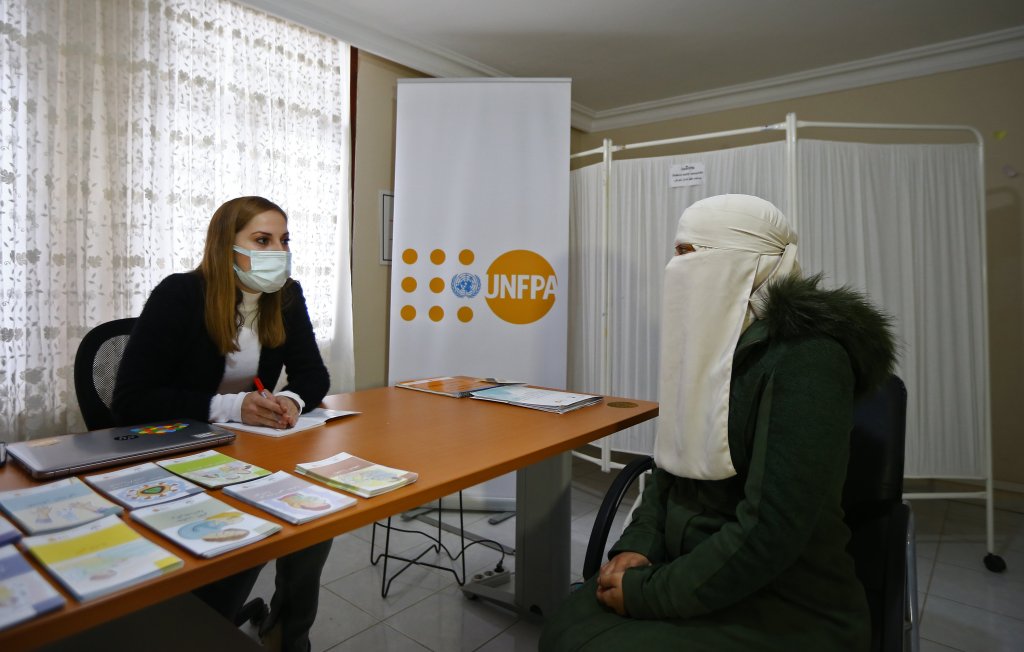
“That piece is still on my back. I shouldn’t be lifting heavy things. Other than that I have no problem. But my father was very scared for us after this incident. That’s why we decided to leave Syria,” said Betul.
When she was just 11 years old, a bomb dropped in front of her home in Syria and a piece of shrapnel struck Betul. Luckily, she survived, but her family soon fled Syria for safety in Turkey. Unfortunately, Turkey came with its own issues. Betul didn’t understand Turkish and, even though she was only a child, her mother wanted her to marry. Betul went to a UNFPA youth center, where she joined a Turkish language group and accessed mental health counseling. Her language group gave her the confidence and skills she needed to excel in school and her counselor helped her talk to her family about not getting married. Today, Betul is in her senior year of high school and is hopeful to go to university.
Inaya in Lebanon
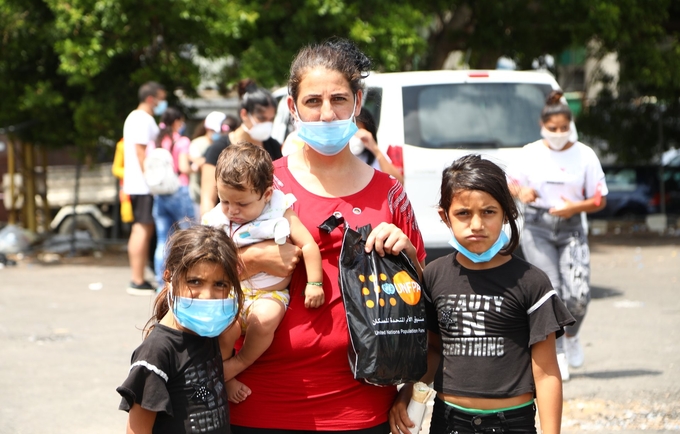
“The small cash that I received has changed my life. I’m aiming to use it next time to open up a small business to sustain an income for my treatment and for my family,” Inaya said.
She lives in Lebanon with her husband and their five children and participates in a cash assistance program. Through the program, UNFPA reaches Syrian refugees in Lebanon who need support for gender-based violence. The cash allows women like Inaya to have agency over their lives. She has the power to determine which needs are most important to her families. Cash assistance also decreases women’s risk of violence by easing families’ financial burdens. And, for Inaya, the cash assistance program empowers her to pursue her goal of becoming self-sufficient as a small business owner.
Ammoun in Jordan
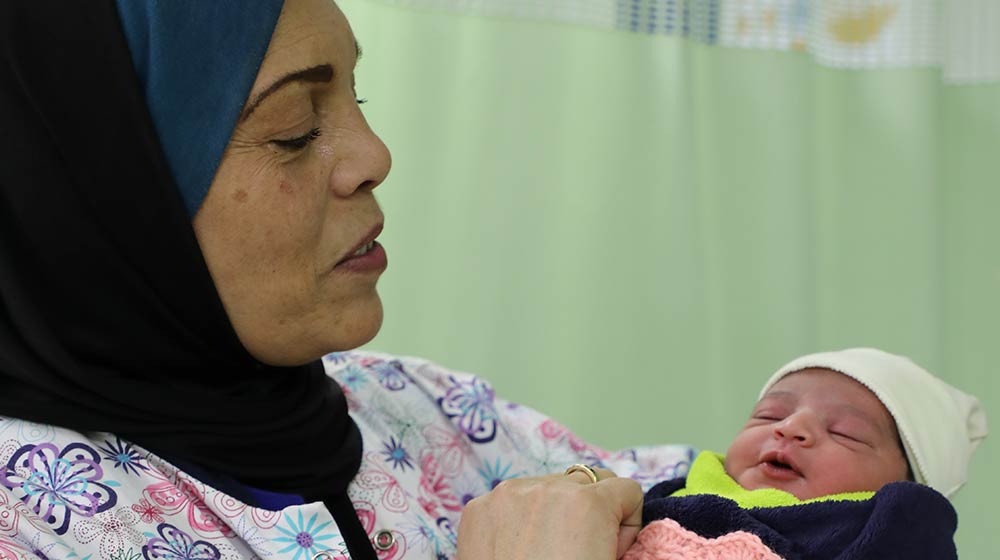
“On my first day at work in the camp, I cried a lot. At that time, I had not worked with refugees before, and I had no idea about their conditions,” said Ammoun.
She is a UNFPA midwife at the Zaatari Refugee Camp, the largest camp for Syrian refugees. Life in Zaatari has not been easy. With severe staff shortages, movement restrictions due to the COVID-19 pandemic, and cold weather in the winter, Ammoun said she has had to work twice as hard to deliver the care her patients need. Incredibly, thanks to Ammoun and the work of other midwives like her, there have been over 14,000 safe deliveries in Zaatari without a single maternal death.
Rozhin in Iraq

“My call to the world, especially people with special needs, is to resist and never give up under any circumstances. My disability is not a burden. In fact, it is a source of strength,” said Rozhin.
She was born with a disability and was reliant on her family to help with routine tasks. Because of the war, Rozhin’s family moved to Iraq. After her mother passed away, Rozhin was stuck living with her father’s new wife and children, who were unaccepting of her disability. She felt totally isolated. Rozhin began attending a UNFPA safe space to learn skills to take care of herself. But gained so much more. Today, Rozhin has gained income-generating skills, resilience, friendships, and confidence.
Hulia in Egypt
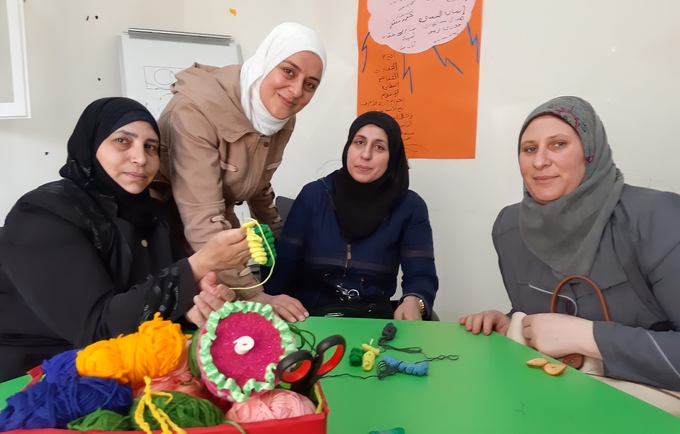
“I am very happy and proud that I have become one of the most important providers of awareness-raising services for refugee women,” said Hulia.
Hulia is a Syrian woman living in Egypt. She had been working with refugee support organizations when several women came to her asking for help after experiencing gender-based violence. She didn’t know what to do, so she turned to a UNFPA safe space abd attended gender-based violence awareness raising sessions. Hulia studied and quickly became a community leader. Today, she teaches the awareness sessions herself and knows exactly how to support survivors of violence when they come to her.
Your support makes it possible for refugees across the Syrian diaspora to access the lifesaving care they need at UNFPA facilities. Many Syrian women and girls have experienced unspeakable horrors and have had to leave their homes. But no matter where they made their homes over the last 11 years, you were there. As this crisis continues, we can’t forget about the women and girls who need us.
– Dana Kirkegaard